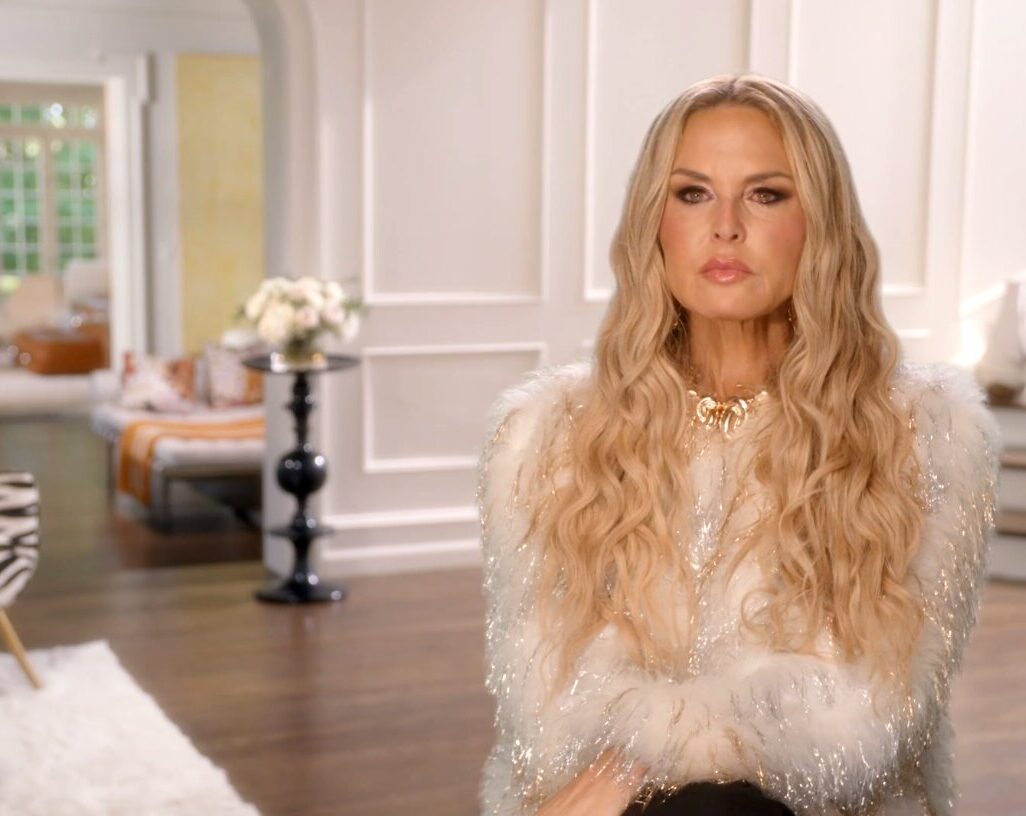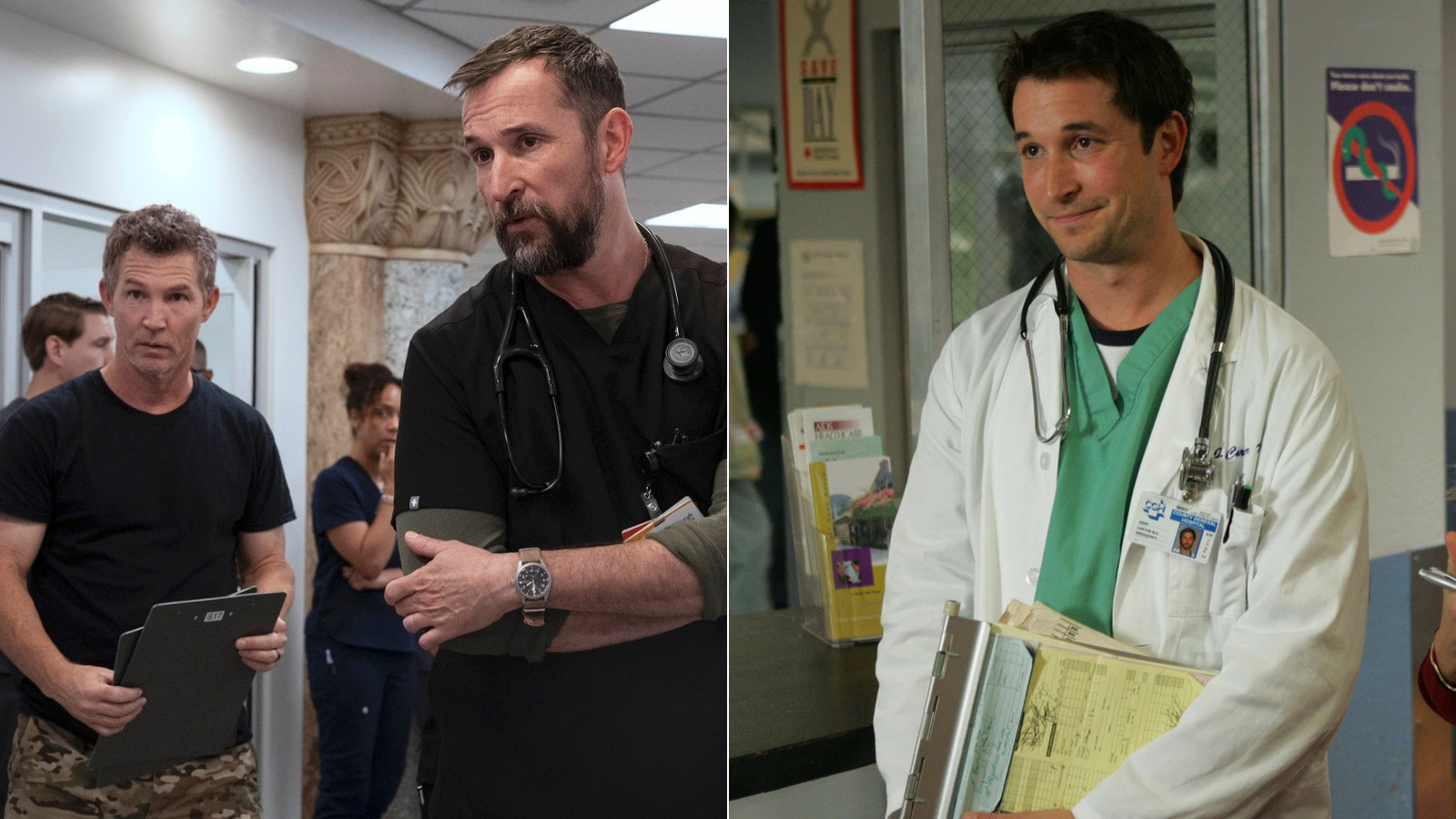
“Report Card” is a captivating episode that explores the human condition and the complexities of delivering juvenile justice. Despite its unfortunate premise of a pre-teen boy murdering his teacher over rap lyrics, the show is way more than just this story. It’s an indictment of the whole damned system. Mechad Brooks, as Det. Jalen Shaw, delivers an honest performance that tapped into genuine emotions, which he portrayed in a way that resonated deeply with me, and I trust the wider audience. Brooks’ performance is a standout. Therefore, I strongly suggest that you watch or rewatch “Report Card”. Why? Let me say more.
Mr. Rhodes, a science teacher, is the subject of this week’s crime. He was a gay man. The first suspect was a parent who believed Mr. Rhodes was improperly influencing his son, so he assaulted him. A song threatening Rhodes’ life eventually surfaces. The beats were made by one student. The lyrics were written by another, Anthony. In true bloodhound manner, detectives Shaw and Reid helped them get beyond the “gay” red herrings and identify Anthony as the murder suspect.

“Report Card” – LAW & ORDER, Pictured: (l-r) Colton Osorio as Anthony Turner, Mia Y. Anderson as Lynisha Austin. Photo by: Virginia Sherwood/NBC © 2024 NBCUniversal Media, LLC
Anthony, 13, is a foster kid. He runs when Shaw and Reid approach. Shaw, a consummate police officer sworn to protect the vulnerable, tries to shield the youngster from other officers who had their guns trained on him. Like Shaw, I was upset when Anthony placed a knife to his neck, screaming that his life was over. My God! I felt sorry for this terrified boy, seeing his fragility and maybe innocence. Shaw knows that fear makes scared people do bad things and not see the repercussions. Shaw presses Anthony to tell the truth. Anthony says he just wanted to scare his teacher and swears that he didn’t know the gun was loaded.
In a conversation between Reid and Shaw, Shaw shares his personal story of being abandoned by his foster parents. Brooks’ acting is a tour de force here. He captures the fragility of a wounded child and the intensity of an adult grappling with residual anger and pain. Shaw sees himself in Anthony, grateful for his father’s return from deployment to care for him. Reid defends Shaw’s character, assuring him he would never take another person’s life. Shaw’s message is undeniably: “There but for the grace of God, go I.” The performance showcases Shaw’s emotional control and strength – tears on the brink yet restrained. This alone is reason to watch.

“Report Card” – LAW & ORDER, Pictured: (l-r) Maura Tierney as Lt. Jessica Brady, Reid Scott as Det. Vincent Riley, Mehcad Brooks as Det. Jalen Shaw. Photo by: Virginia Sherwood/NBC © 2024 NBCUniversal Media, LLC
When ballistics prove that Anthony’s fingerprints were found on the bullets, Shaw realizes that Anthony has deceived him. In the concluding moments of the show, Brooks’ performance once more stands out. Shaw is betrayed. So, Brooks shows Shaw’s profound disappointment and ultimate retreat from his relationship with Anthony. He depersonalizes Anthony by not using his name, simply saying “Get in the car kid,” when he tells him that his 10-year, plea deal has been revoked. Anthony will be charged as an adult.

“Report Card” – LAW & ORDER, Pictured: (l-r) Colton Osorio as Anthony Turner, Mehcad Brooks as Det. Jalen Shaw. Photo by: Virginia Sherwood/NBC © 2024 NBCUniversal Media, LLC
The District Attorney’s office made a controversial decision to “split the baby,” dividing responsibility for the crime between the child shooter and the principal for his failure to act. The principal agreed to serve five years. I was ambivalent about this outcome, particularly because the victim’s spouse did not want to see the principal charged. However, I realized that the principal needed to face accountability for giving in to his self-preserving motives. This episode serves as a cautionary tale about the consequences of self-serving actions, as it can lead to chaos and dysfunction, tearing apart trust, cooperation, and community. Isn’t this what “Report Card” exemplifies?
Public servants, including school principals, district attorneys, and the people who work in the foster care and juvenile justice systems, have a duty to act in the best interests of the people. The “Report Card” serves as a mirror to reflect the truth about public servants, allowing us to see flaws and failures. For example, this episode demonstrates the principal’s disregard for protocol, while the DA’s office charged a traumatized 13-year-old as an adult, despite the child’s obvious lack of mental, emotional, moral, and ethical development. Foster care failed to provide consistent, supportive environments for vulnerable kids like Anthony (and Shaw). The juvenile justice system also failed, ironically, leading Anthony to kill to avoid returning to it.

“Report Card” – LAW & ORDER, Pictured: (l-r) Mehcad Brooks as Det. Jalen Shaw, Hugh Dancy as ADA Nolan Price, Odelya Halevi as ADA Samantha Maroun, Reid Scott as Det. Vincent Riley. Photo by: Virginia Sherwood/NBC © 2024 NBCUniversal Media, LLC
The episode underscores the widespread appeal of Law & Order, while also drawing attention to how unresponsive, unfair, and unable the American legal system is at delivering justice, particularly juvenile justice. Some critics lament that Wolfe’s shows can excessively portray the positive effects of law enforcement. Law & Order, particularly “Report Card,” is the opposite. The story takes viewers on a roller coaster ride, replete with stomach-churning highs and gut-wrenching lows. The story was both wild and nerve-wracking. It worked because it was done right!
What did you think of the episode’s ride? How do you think the recent moral-ethical decisions affecting Shaw’s detainee Anthony and Reid’s brother will impact their friendship?
Overall Rating:
10/10


 Lynette Jones
Lynette Jones

.png)


